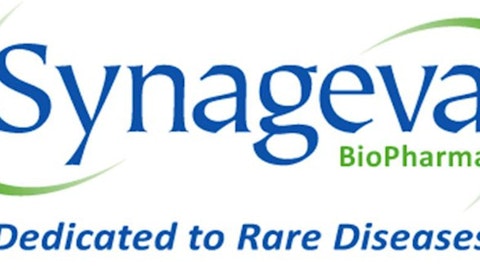Small biotech companies have great investment potential if you can identify them properly. A small biotech with a differentiated treatment approach and strong commercialization plans can become a rainmaker. However, given the level of cutting edge technology they use, a layperson without an MD or an advanced degree in statistics can hardly get a grip on these companies and what they are all about. Unless you know just how good their technology is, how are you going to invest your money in them?
Well, there’s a way, and that is called following in the footsteps of the big boys. Hedge funds have billions of dollars to invest, and a few million to throw in for performing proper due diligence on small biotechs. For small investors, it’s best to piggyback on their research, see who they are buying into, and then take a call.
A different approach to R&D
Idenix Pharmaceuticals Inc (NASDAQ:IDIX) has Baupost Group putting their money on it in recent times. Baupost bought over 8 million shares in Idenix for $100 million. Baupost Group is the world’s 11thlargest hedge fund and their portfolio value is about $3.1 billion. Their assets have grown six-fold over the past decade. Baupost focuses on superior long-term returns rather than ending each year with a positive return.

For their drug development efforts they have collaborated with Novartis AG (ADR) (NYSE:NVS) and Johnson & Johnson (NYSE:JNJ). The all-oral direct-acting combination therapy that Idenix Pharmaceuticals Inc (NASDAQ:IDIX) is aiming at will be able to treat a larger patient base by offering alternatives to those whom existing therapies do not help.
This approach is a differentiating factor for the company.
Also, the company is not considering the path of creating solo blockbusters; rather they are building medications that are potent by themselves and effective in combination therapies as well. The HCV market has big players in it already, but given the vast potential for growth, Idenix can find a place given its product is of such good quality.
Idenix Pharmaceuticals Inc (NASDAQ:IDIX) is in the infectious disease market, and has mainly targeted viruses such as HBV, HCV and HIV to date. The company co-developed and co-launched an HBV medication, telbivudine (Tyzeka/Sebivo), with Novartis Pharma. This big pharma company has worldwide commercialization rights for telbivudine, giving confidence to investors that an experienced big player will be in charge of generating sales for this product. Therefore, chances of the drug’s initial success as well as long-term viability are bolstered. Idenix Pharmaceuticals Inc (NASDAQ:IDIX) has now focused its attention toward HCV. Its HCV drugs are in the preclinical and phase I stages of development.
For FY 2012 the company reported revenues worth $69.7 million, which is a 1,000% increase from the $7 million revenues generated in 2011. The company’s cash and cash equivalents total $230.8 million, which it expects will be sufficient for sustenance of operations into the later part of 2014.
Getting to diseases earlier
Another pharmaceutical company that has attracted a top hedge fund, BlackRock Advisors, is Alnylam Pharmaceuticals, Inc. (NASDAQ:ALNY). BlackRock has invested $27.56 million by buying more than 635,000 shares of Alnylam. This giant hedge fund’s value is about $99 billion. BlackRock is the world’s largest money manager.
Alnylam is an interesting company. The company’s R&D vision is what medicine’s future is mainly going to be about. From treating symptoms, to blocking molecular pathways in disease, we are now moving toward inhibiting gene transcriptions. Therefore, it is going to be possible to target disease-causing genes and block a molecular cascade at a much earlier stage than has been possible so far.



